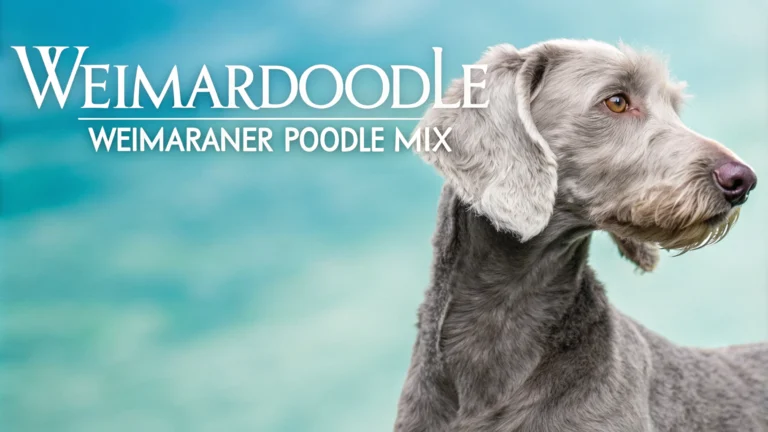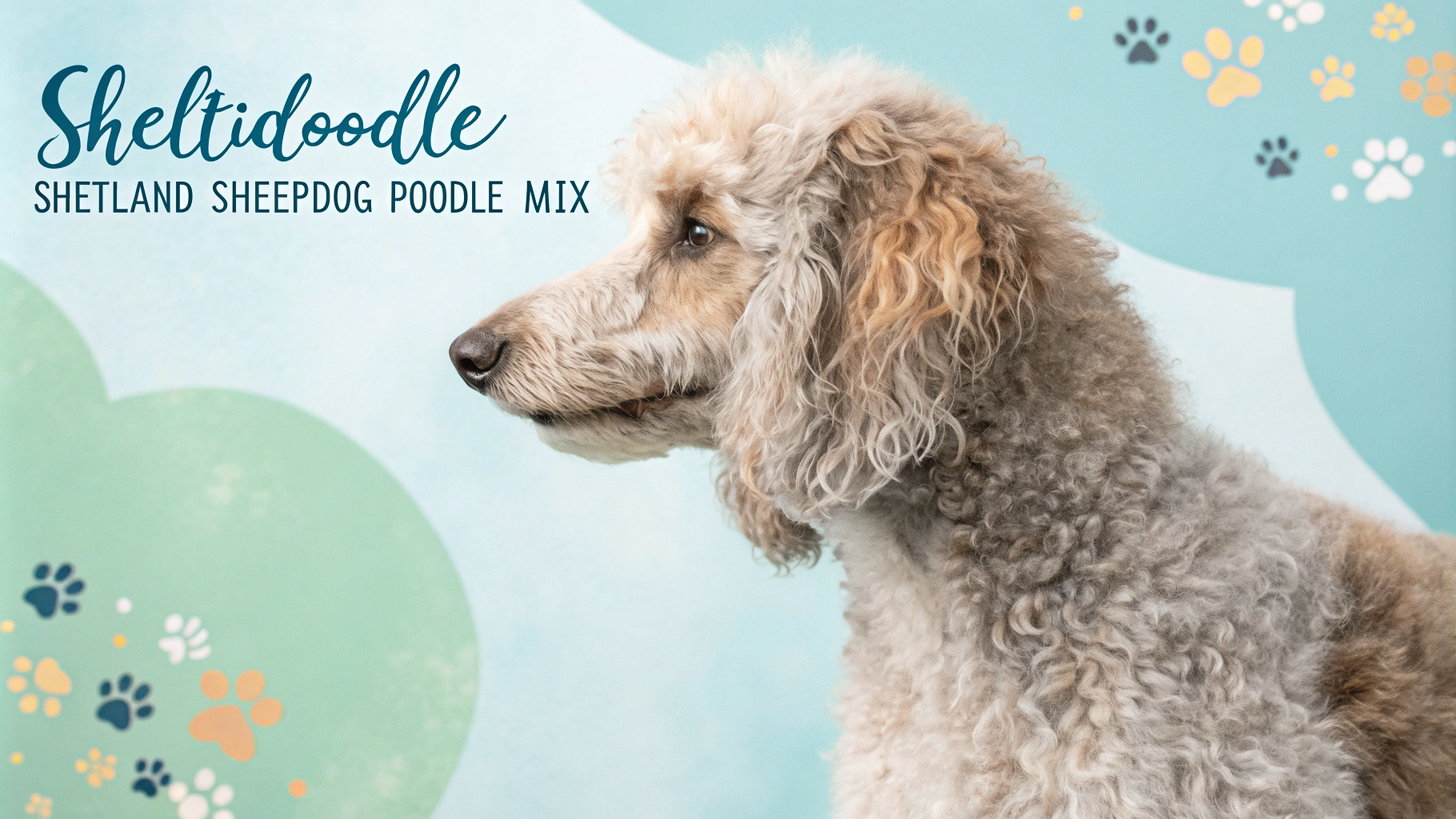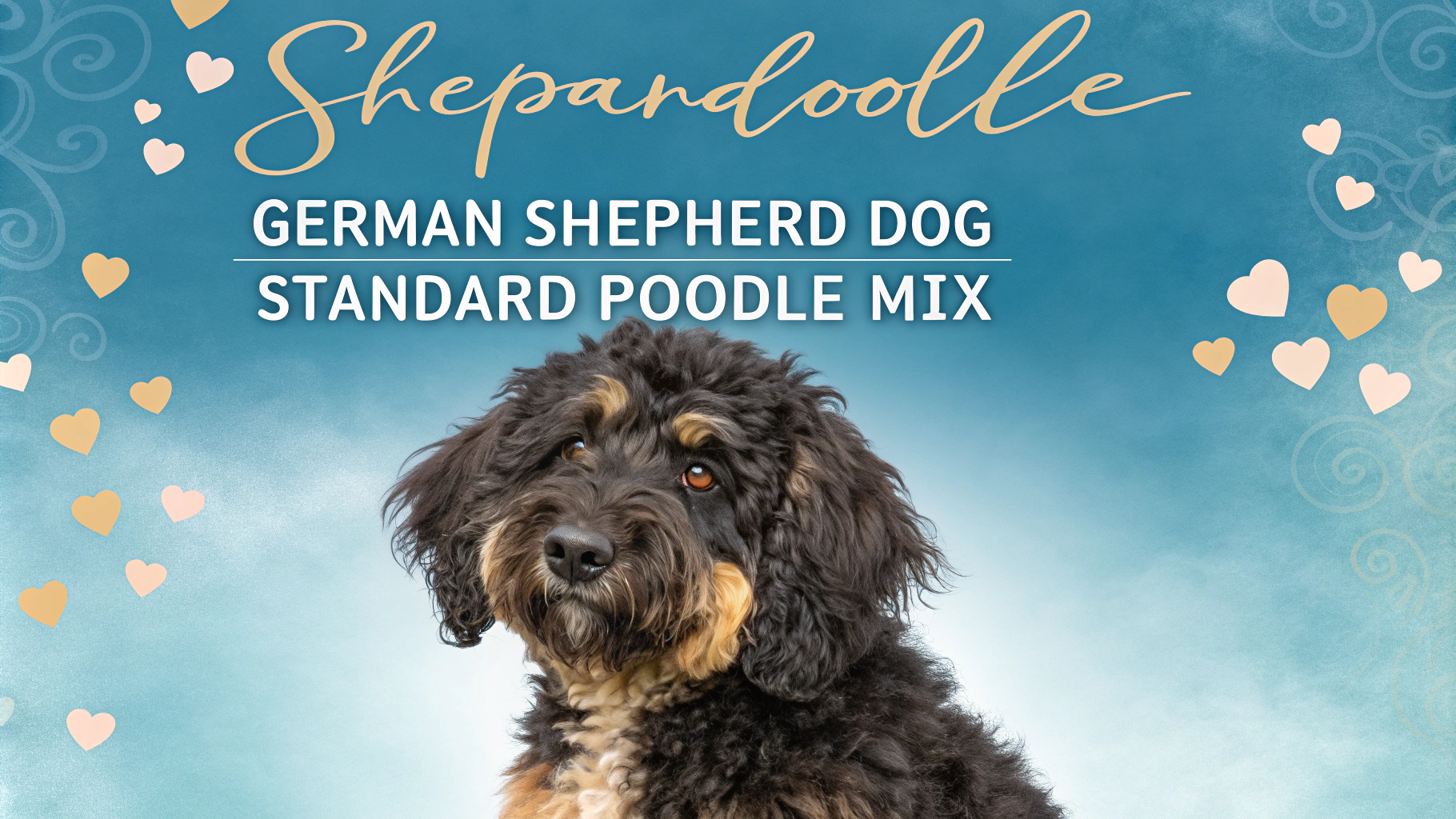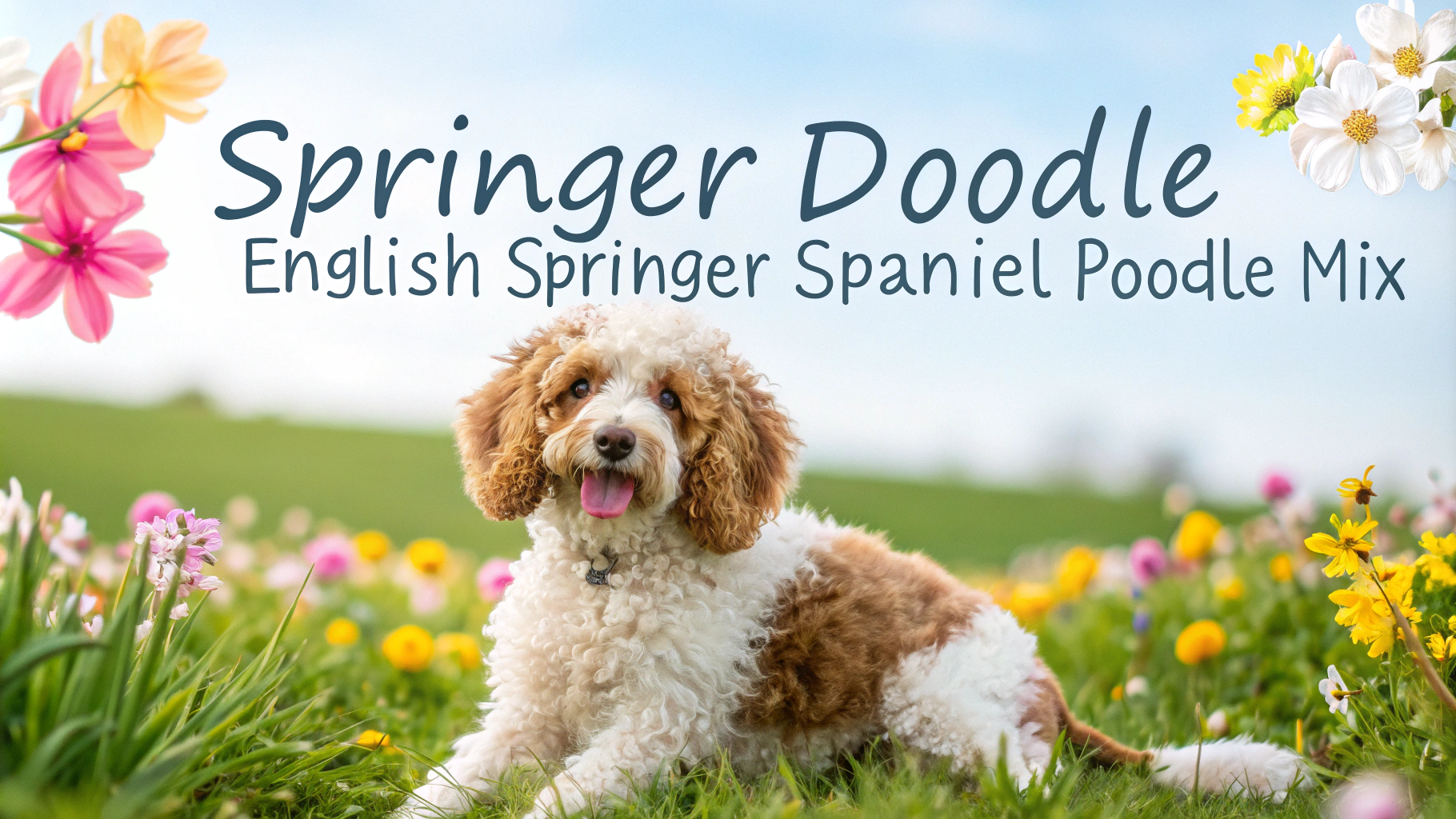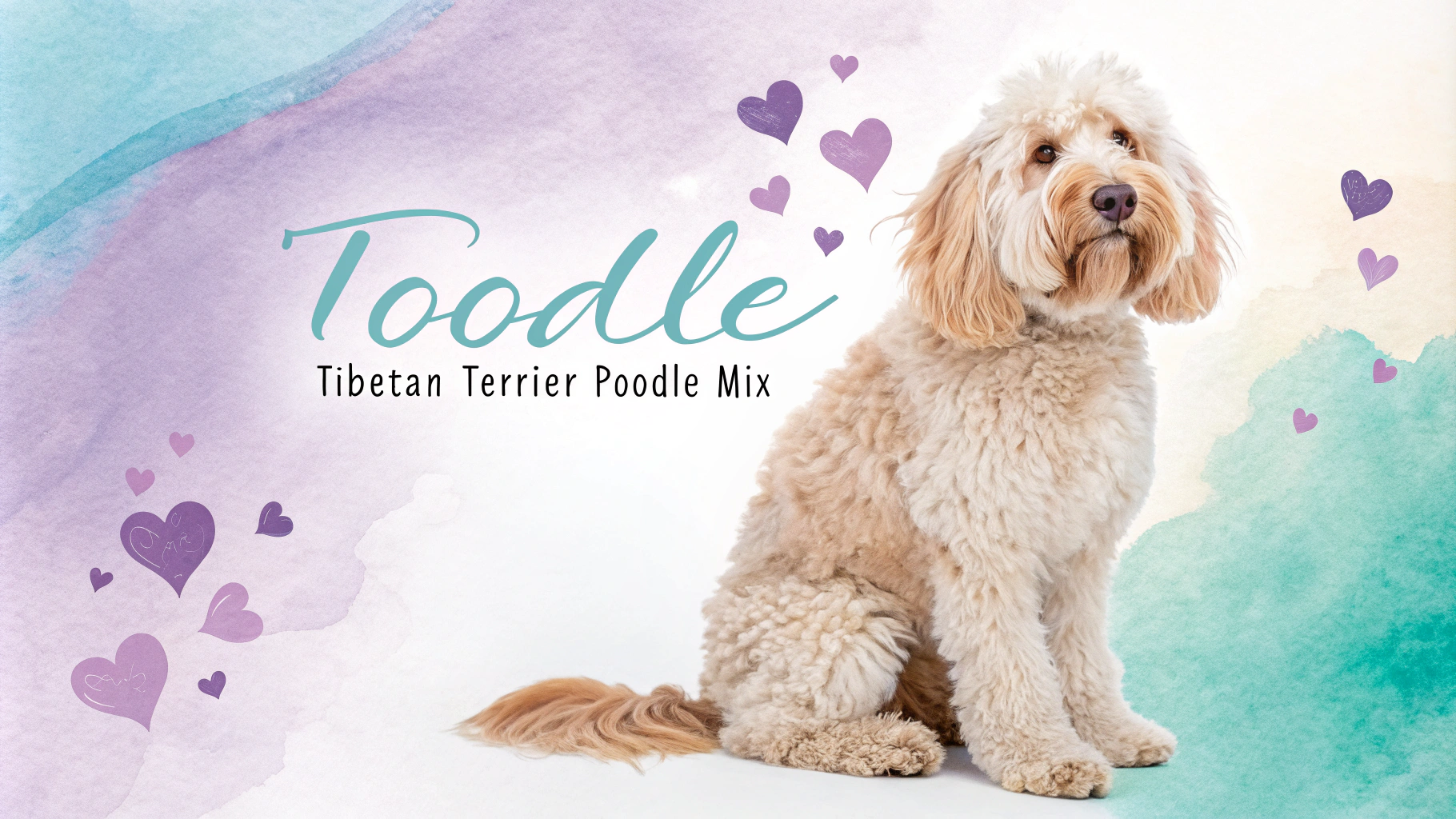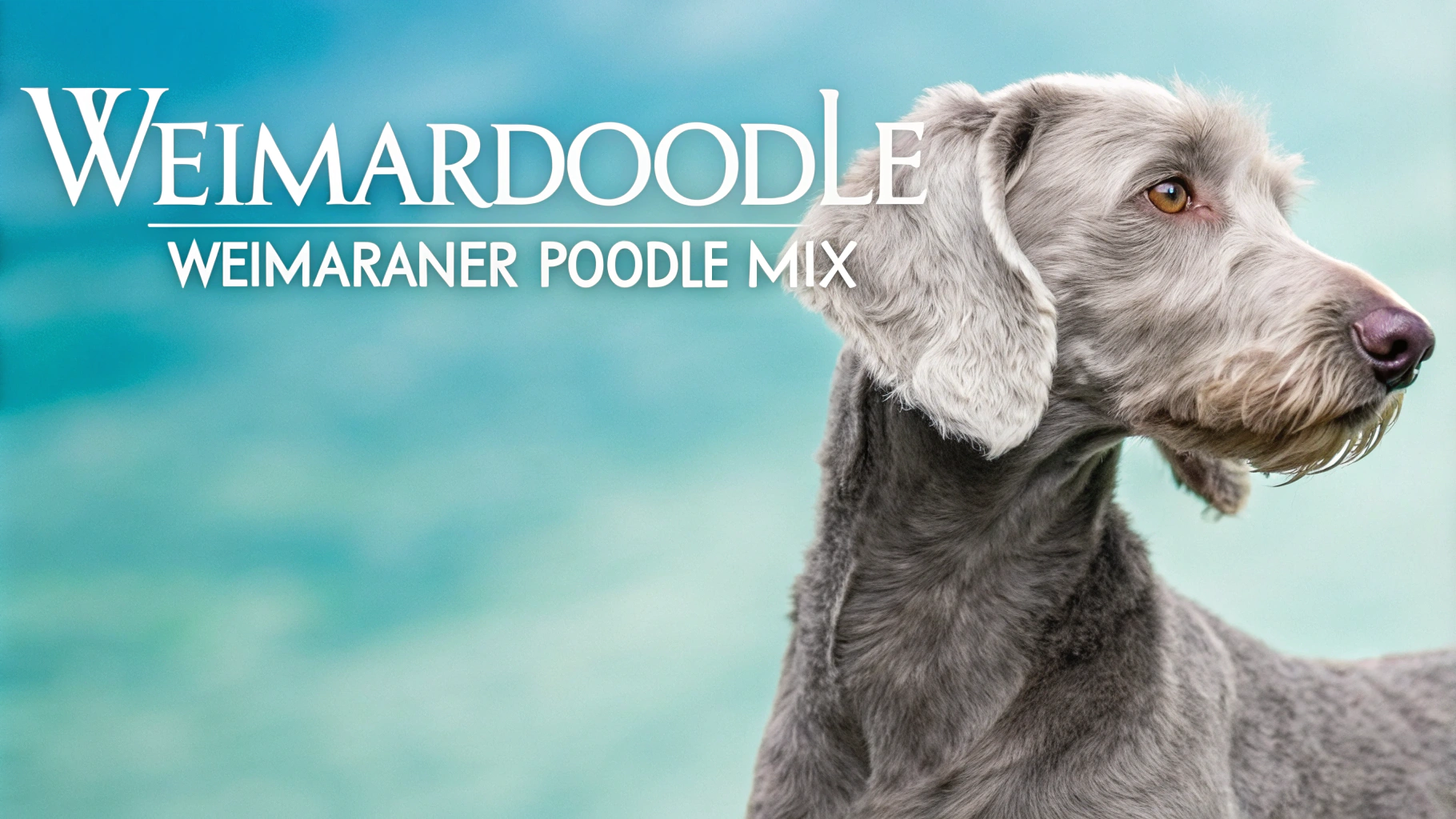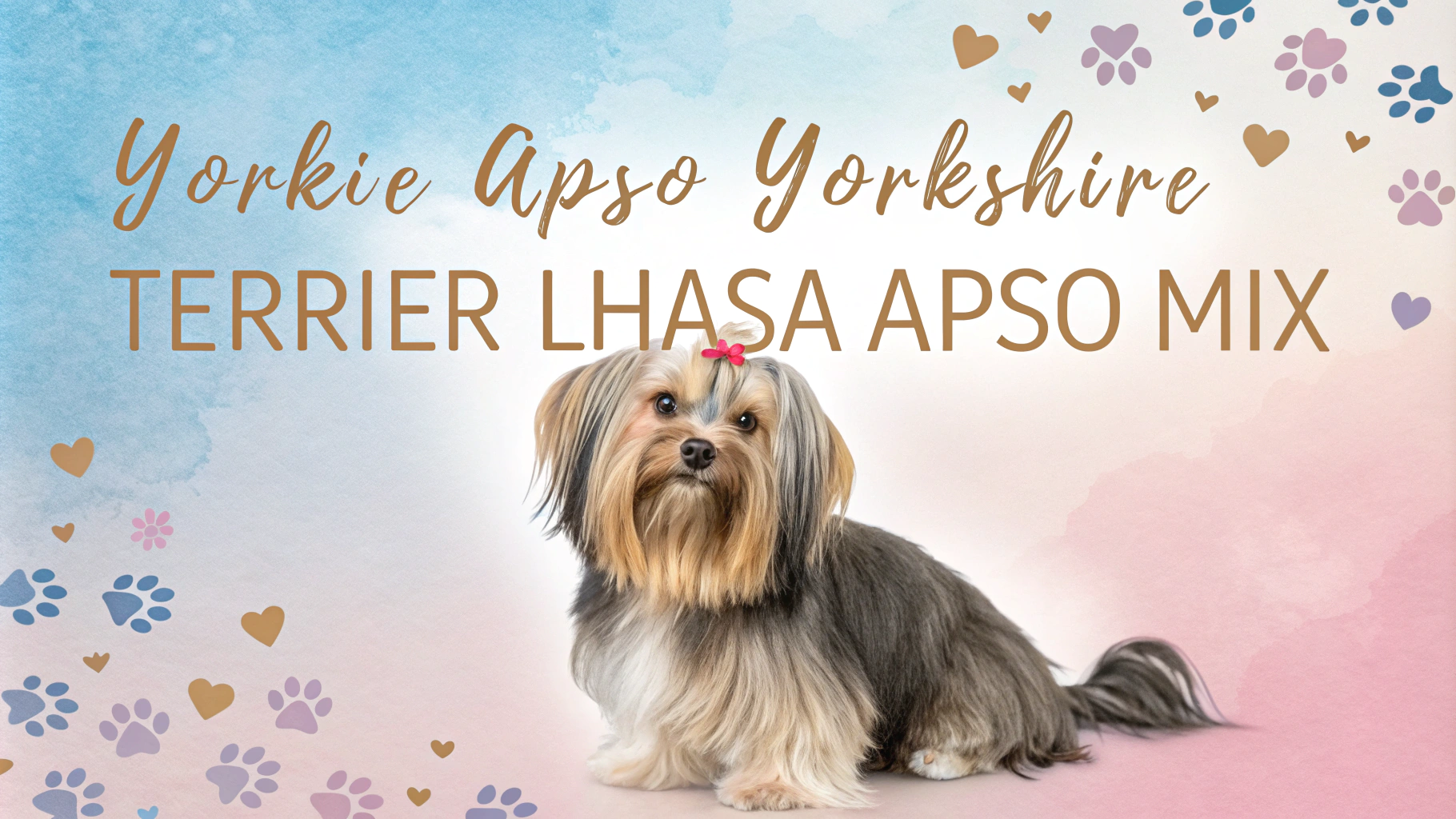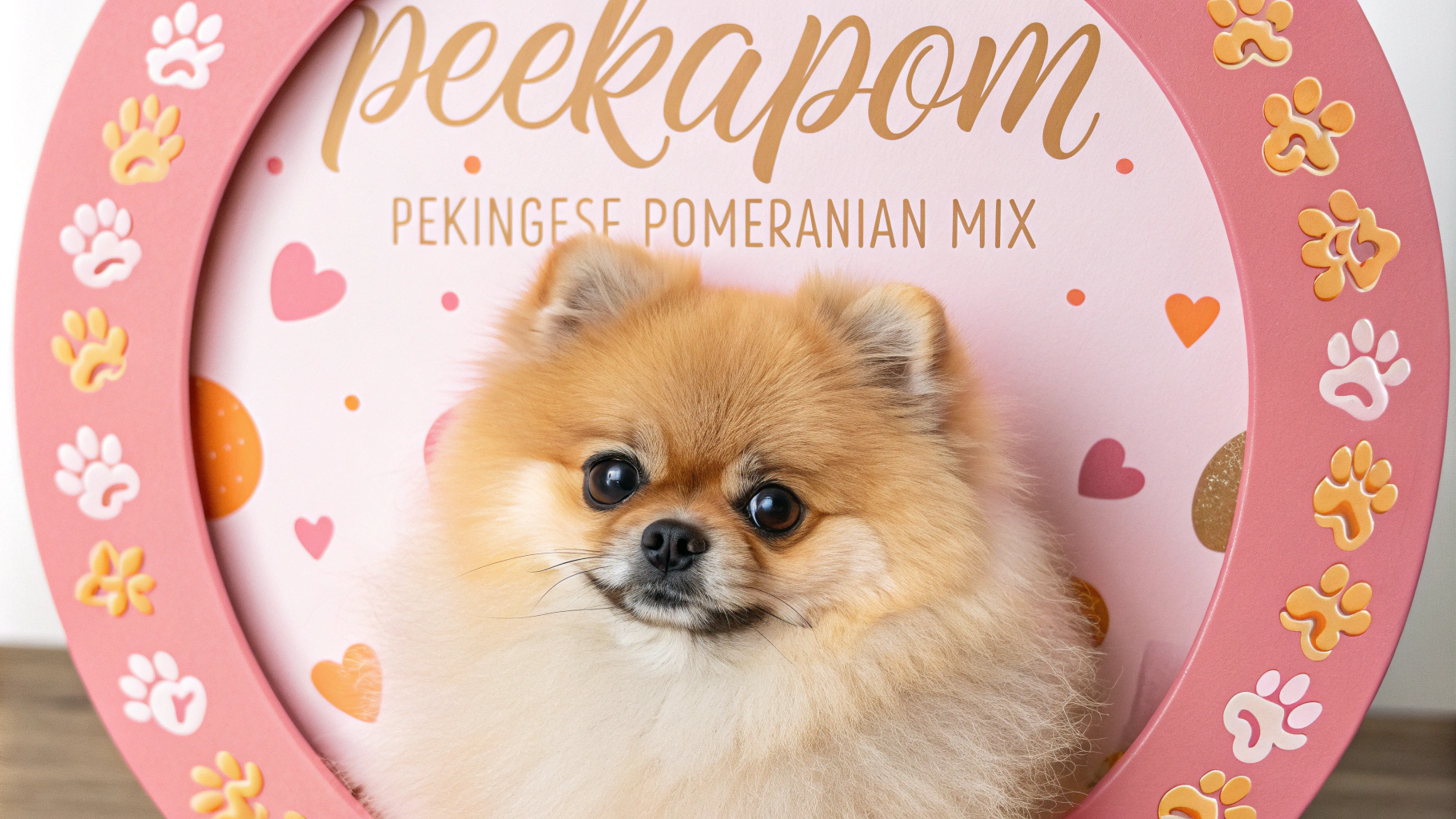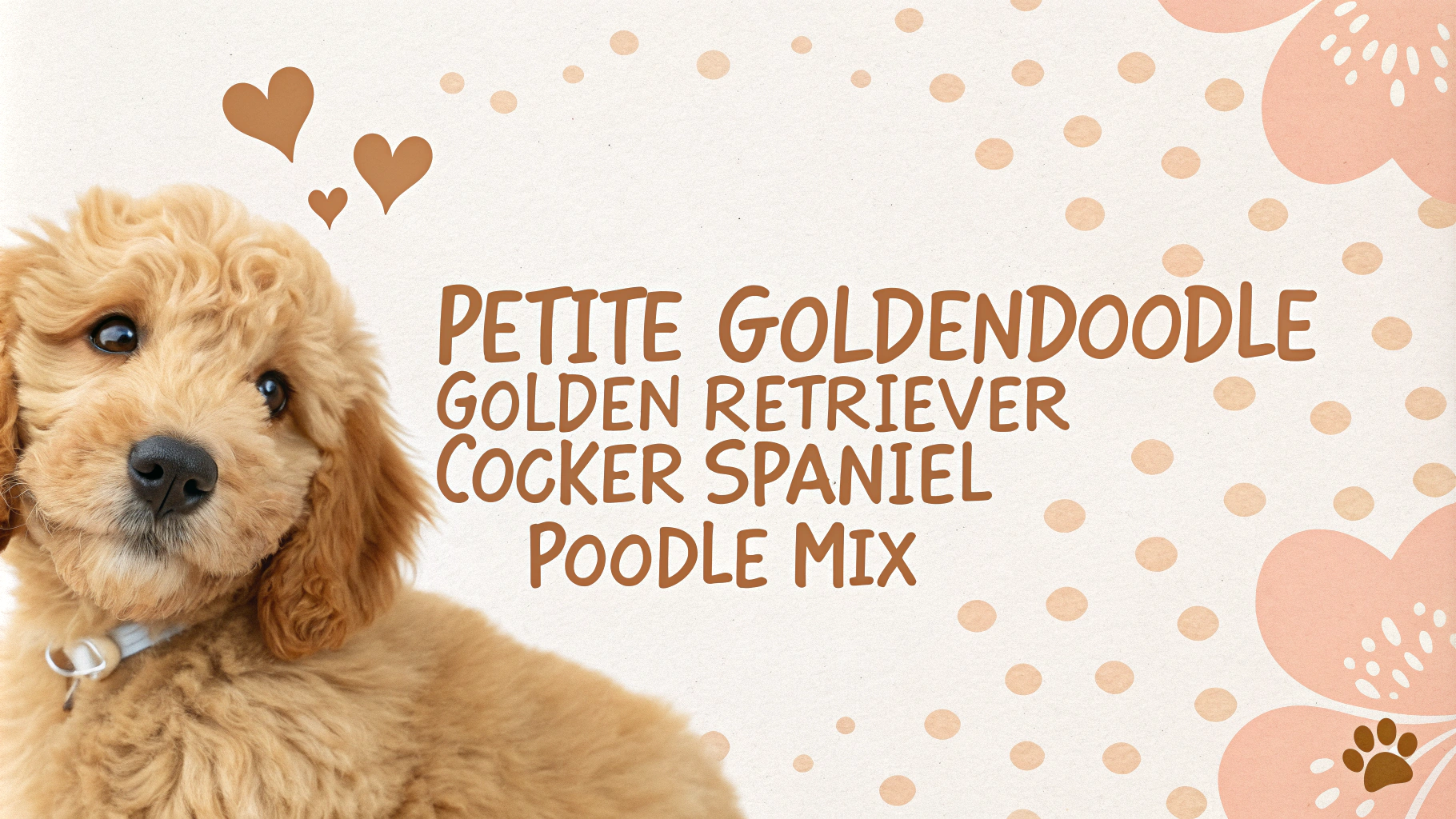The Weimardoodle is a designer dog breed that combines the Weimaraner and the Poodle. This mixed breed inherits traits from both parent breeds, resulting in an intelligent, energetic, and affectionate companion. Weimardoodles are known for their unique appearance, which often features a wavy or curly coat in various shades of gray, silver, or brown. As a relatively new hybrid, the Weimardoodle is gaining popularity among dog enthusiasts who appreciate its versatile nature and charming personality.
Key Facts
- Size: Medium to large (45-70 pounds, 20-27 inches tall)
- Lifespan: 10-13 years
- Coat: Wavy or curly, low to moderate shedding
- Colors: Gray, silver, brown, or a combination
- Temperament: Intelligent, energetic, affectionate
- Exercise needs: High
- Trainability: High
- Good with children: Yes, when properly socialized
- Good with other pets: Generally yes, but may have a strong prey drive
Character Traits
Weimardoodles inherit a blend of personality traits from their Weimaraner and Poodle parents, resulting in a unique and lovable companion. These dogs are typically intelligent, energetic, and affectionate, making them excellent family pets. They often display a strong desire to please their owners, which contributes to their trainability. Weimardoodles are known for their friendly and outgoing nature, often forming strong bonds with their family members.
Due to their Weimaraner heritage, Weimardoodles may exhibit a strong prey drive and a tendency to be protective of their family. This can make them excellent watchdogs, but it also means they require proper socialization from an early age. Their Poodle lineage contributes to their high intelligence and problem-solving abilities, which can sometimes lead to mischievous behavior if not properly stimulated mentally and physically.
Weimardoodles are generally good with children and other pets when raised together, but their high energy levels mean they may accidentally knock over small children during play. They thrive on human companionship and can develop separation anxiety if left alone for long periods. Overall, the Weimardoodle’s character is best described as loyal, playful, and eager to please, making them a joy to have as a family pet for active households.
History & Origins
The Weimardoodle is a relatively new designer dog breed, likely originating in the late 20th or early 21st century as part of the growing trend of creating hybrid dogs. While the exact origins of the Weimardoodle are not well-documented, understanding the history of its parent breeds provides insight into its background.
The Weimaraner, one of the parent breeds, originated in Germany in the early 19th century. Originally bred for hunting large game, Weimaraners were developed by the nobility of Weimar, Germany. These dogs were prized for their speed, stamina, and versatile hunting abilities. Over time, they transitioned from hunting dogs to beloved family companions, known for their distinctive silver-gray coat and striking eyes.
The Poodle, the other parent breed, has a long and diverse history. Despite being associated with France, Poodles likely originated in Germany as water retrievers. Their name is derived from the German word “pudeln,” meaning to splash in water. Poodles were bred in three sizes (Standard, Miniature, and Toy) and became popular as circus performers, companion dogs, and even truffle hunters due to their high intelligence and trainability.
The creation of the Weimardoodle aimed to combine the Weimaraner’s hunting instincts and loyal nature with the Poodle’s intelligence and hypoallergenic coat. This hybrid was likely developed to appeal to dog lovers seeking a smart, active companion with potentially reduced shedding. As with many designer breeds, the Weimardoodle is not recognized by major kennel clubs but has gained a following among enthusiasts who appreciate its unique blend of characteristics.
Health Concerns
Weimardoodles generally benefit from hybrid vigor, but they can still inherit health issues from their parent breeds. Common concerns include:
- Hip dysplasia: A genetic condition affecting the hip joint
- Bloat (Gastric dilatation-volvulus): A life-threatening condition more common in deep-chested dogs
- Eye problems: Including progressive retinal atrophy and cataracts
- Hypothyroidism: An underactive thyroid gland
- Allergies: Both food and environmental allergies can occur
Regular veterinary check-ups, a balanced diet, and proper exercise can help mitigate some of these risks. It’s crucial to obtain a Weimardoodle from a reputable breeder who conducts health screenings on parent dogs.
Exercise Needs
Weimardoodles are high-energy dogs that require substantial daily exercise to maintain their physical and mental well-being. They typically need:
- 1-2 hours of vigorous exercise daily
- A mix of activities, including walks, runs, and playtime
- Mental stimulation through puzzle toys and training sessions
These dogs excel in various canine sports, including agility, obedience, and retrieving. Swimming can be an excellent low-impact exercise option, as many Weimardoodles enjoy water activities. Without adequate exercise, they may develop destructive behaviors or become anxious. Regular exercise not only keeps them physically fit but also helps prevent boredom and promotes better behavior.
Space Requirements
Weimardoodles are medium to large-sized dogs that thrive in environments with ample space. Ideal living conditions include:
- A house with a securely fenced yard
- Access to outdoor areas for play and exercise
- Sufficient indoor space for movement and rest
While they can adapt to apartment living if provided with extensive daily exercise, a larger living space is generally more suitable. Weimardoodles are active indoors and may not be well-suited to small, confined spaces. They benefit from having room to stretch out and move freely. Access to a yard or nearby park is crucial for their exercise needs and overall well-being.
Nutrition & Feeding
A balanced, high-quality diet is essential for maintaining the health and energy levels of Weimardoodles. Key nutritional considerations include:
- High-quality protein sources to support muscle development
- Appropriate fat content for energy and coat health
- Complex carbohydrates for sustained energy
- Essential vitamins and minerals for overall health
The amount of food should be adjusted based on the dog’s age, size, activity level, and metabolism. Typically, adult Weimardoodles require 2-3 cups of high-quality dry dog food daily, divided into two meals. Avoid overfeeding, as these dogs can be prone to bloat and obesity. Fresh water should always be available. Consult with a veterinarian to determine the best diet plan for your individual Weimardoodle.
Grooming Tips
Weimardoodles typically have a coat that is a mix between the short, smooth coat of a Weimaraner and the curly, low-shedding coat of a Poodle. The exact texture and length can vary, but most Weimardoodles will require regular grooming to maintain their coat health and appearance. Here are some essential grooming tips:
- Brushing: Brush your Weimardoodle’s coat 2-3 times a week to prevent matting and tangling. Use a slicker brush or metal comb to work through any knots gently.
- Bathing: Bathe your Weimardoodle every 4-6 weeks or as needed. Use a mild dog shampoo to avoid skin irritation.
- Haircuts: Depending on your preference and the coat type, your Weimardoodle may need professional grooming every 6-8 weeks to maintain a neat appearance.
- Ear Care: Check and clean the ears weekly to prevent infections, especially if your dog has floppy ears like a Poodle.
- Nail Trimming: Trim nails every 2-4 weeks or as needed to prevent overgrowth and discomfort.
- Dental Care: Brush teeth 2-3 times a week to maintain good oral hygiene and prevent dental issues.
Remember that grooming is not just about maintaining appearance but also an opportunity to check for any skin issues, lumps, or abnormalities. Regular grooming sessions can help strengthen the bond between you and your Weimardoodle while keeping them healthy and comfortable.
Training Approach
Weimardoodles are intelligent dogs that inherit the Poodle’s high trainability and the Weimaraner’s eagerness to please. This combination makes them generally responsive to training, but they may also have a stubborn streak. Here are some effective training approaches for Weimardoodles:
- Positive Reinforcement: Use treats, praise, and toys to reward good behavior. This method is particularly effective with Weimardoodles due to their food motivation and desire for attention.
- Early Socialization: Expose your Weimardoodle to various people, animals, and environments from a young age to develop a well-rounded temperament.
- Consistency: Establish clear rules and boundaries, and ensure all family members follow the same training protocols.
- Mental Stimulation: Incorporate puzzle toys and training games to keep their intelligent minds engaged and prevent boredom-related behavioral issues.
- Obedience Training: Start with basic commands like sit, stay, come, and down. Progress to more advanced training as they master the basics.
- Leash Training: Begin leash training early, as both parent breeds can be prone to pulling if not properly trained.
Remember that Weimardoodles can be sensitive, so use gentle, patient training methods. Avoid harsh corrections or punishment-based training, as this can lead to anxiety or fear. Keep training sessions short and fun to maintain their interest and enthusiasm. With consistent, positive training, Weimardoodles can excel in various activities, including agility, obedience, and even therapy work.
